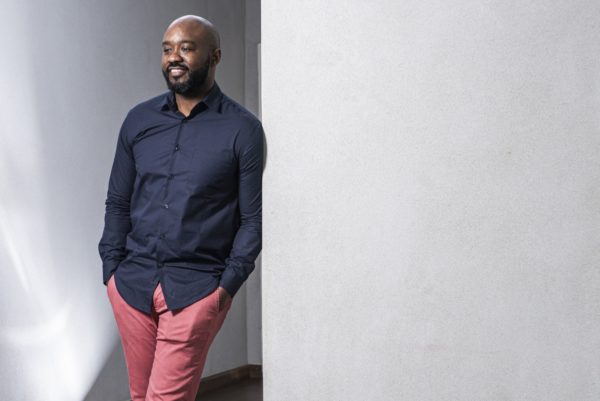By Charlie Wells
Still trawling through WallStreetBets on Reddit for investing tips? So passé. The hot new spot to talk stocks is an app you might not even be invited to use yet.
It’s called Clubhouse. If you haven’t heard, the audio-oriented, invite-only social network is part podcast, part chat room. And in the past few months it has become a favorite pontificating ground for tech titans and celebrities including Elon Musk, Mark Zuckerberg and Drake. Listeners tune in to live conversations and ask questions — verbally — in sessions covering everything from mixed martial arts to money management.

While big names on the platform have hogged headlines, Clubhouse has quietly amassed a growing cohort of financial aficionados who gather daily in groups such as “Stocks 2 Freedom,” “Options Bae” and “Stock Market Academy.” Such groups — many which have only been on air for a few weeks — already count hundreds of thousands of members and followers collectively. (Members have access to a few more features within a club than followers do.)
Since its debut last March, Clubhouse has clocked some 5 million downloads, according to analytics firm Apptopia. In January, investors including Andreessen Horowitz valued the company at $1 billion. And in a sign of Clubhouse’s growing popularity, social-media giant Facebook is said to be exploring audio-related chat products that could ultimately compete with the platform.
“Instagram is more visual, Reddit is more of a text situation,” said Adam Terrell, a 37-year-old from Owings Mills, Maryland, who is one of four hosts of the “Stock Market Moves” club, which has more than 85,000 members and followers. “The element which makes it all different is the voice piece.”
Voices are certainly what made a recent two-hour episode of “Stock Market Moves” different from any other social media experience on the internet right now. Terrell and his co-hosts — Tahrim Kahlis, Dion Foxworth and Justin Roland — gather weekdays at 9 a.m. New York time to talk trades before markets open a half hour later. It’s an informal setting that feels like something between a chatty business-news markets show on television and a geeky panel discussion at a college investment society.

On their recent show, billed “Women Wednesday,” the guys had convened a panel of female traders to chat for an audience of nearly 1,500 listeners. The lead subject of the day? Pot.
Less than 24 hours prior, shares in Canadian cannabis company Canopy Growth Corp. jumped as much as 16% after the firm announced it expected to gain broad access to the U.S. market in 2021. That, alongside New York state’s push to legalize marijuana and speculation that a Democratic majority in Congress could lead to federal legalization, was driving a surge in the sector. But one of the show’s guests was urging caution.
“Be very careful in all your weed stocks right now,” Tiffany James, a 26-year-old from Brooklyn, warned minutes before opening bell. “If you do not know how to attack day trades, if you do not know how to exit a trade, unfortunately you have to be very careful here because it’s going to go crazy and the increase in volume is already here.”
James hosts her own club, “Modern BLK Girl,” which is one of the largest in the Clubhouse financial space with some 98,000 members and followers. A coder by training, she says she first started learning about the markets by watching YouTube videos.
Like James, none of the hosts of “Stock Market Moves” is a financial adviser. Their surge in popularity in many ways mirrors the rise of stock watchers on other social-media platforms and internet forums including TikTok, Twitter and Reddit, where armchair traders have earned millions of dollars — and followers.
“It does make me a little bit worried how there’s no regulation about financial advice in those platforms,” said Dan Herron, a financial adviser at Elemental Wealth Advisors in San Luis Obispo, California. He welcomes the freedom of expression Clubhouse offers, but worries that listeners may be confusing day trading with investing for retirement. “Those are two totally different things,” he said.
Foxworth, in Johannesburg, South Africa, says he feels the weight of his group’s sudden popularity and is transparent with listeners.

“None of us are financial advisers, we say that every call,” he said. “We want people to understand we’re giving you our unique experience in the market, not trying to tell people what to do with their money.”
They also aren’t trying to make money from being on Clubhouse, at least not directly. Joining the app and clubs like “Stock Market Moves” is free. However, Clubhouse recently announced it plans to test features that would allow hosts to be paid directly, including tipping, ticketing, or subscriptions.
For now, hosts say they see the app as an opportunity to build an audience and possibly drive interest in businesses they run off the platform. In the financial space, that usually means video-oriented courses about trading taught on platforms such as Zoom.
Clubhouse — like Reddit and other social-media platforms — is no stranger to controversy. The app came under fire in the autumn when a speaker in a conversation trafficked anti-Semitic tropes before hundreds of listeners. (Other listeners pushed back and said the speaker was perpetuating harmful stereotypes.)
The app’s co-founders, Paul Davison and Rohan Seth, have written that they created Clubhouse “to build a social experience that felt more human — where instead of posting, you could gather with other people and talk.” The company didn’t respond to a request for comment.
Hosts and listeners say the nature of Clubhouse makes it easier to correct misinformation and makes the space more collegial than other corners of the internet. That is because it is easy to be snarky behind the shield of an avatar. It’s more difficult when you have to use your own voice before an audience.
Still, even on the latest episode of “Stock Market Moves,” some speakers pushed little-known stocks without disclaiming what their full interests in those assets might be.
“Because it’s an open space, people are going to come and pump their stuff,” Terrell said. “We try to counterbalance that.”
Foxworth said the week of GameStop Corp.’s surge was the first time he got hate mail. One speaker started talking about having made over a million dollars trading the video-game retailer. The hosts worried he might encourage first-time traders, who often only have a few hundred dollars to invest, to buy too much of the stock.
So they muted him.
Already, listeners have started to get a sense of when a conversation might be heading in the wrong direction.
“Any time I go into a room and there’s only one person speaking on stage, I know it’s a red flag. It’s like a dictatorship,” said Alaina Bradley, a participant on Wednesday’s show and co-host of the “Options Bae” club, which focuses on stocks and options trading. Bradley looks for conversations with multiple hosts who can correct, or at least question, bad information when it comes up.
On “Stock Market Moves,” roughly an hour after the opening bell — on the show a literal bell chimes at 9:30 — one new trader asked about how to invest in IPOs. That was Nadia Andrews, a 40-year-old interior designer from Edmonton, Alberta, who said she had been listening for a few weeks but was asking a question on Clubhouse for the first time.
From his home 2,300 miles away, Terrell, who goes by “Benz” on the show, leaned into his phone microphone and offered a pretty straightforward answer: “If it’s a real investment, I’d say wait until that first earnings report comes out.”
Andrews says she is a fan of the show’s straight talk. She also likes Clubhouse more than other digital platforms like YouTube. That is in part because hosts can respond directly to listeners in real time. Since she started tuning into “Stock Market Moves” in January, she says she has opened a brokerage account and has begun trading ETFs and stocks.
“Clubhouse just popped up at the right time,” she said. “I was looking for something like Clubhouse that would teach me about stocks and I spent a lot of time on YouTube, but Clubhouse was just perfect timing.”
For more articles like this, please visit us at bloomberg.com.




